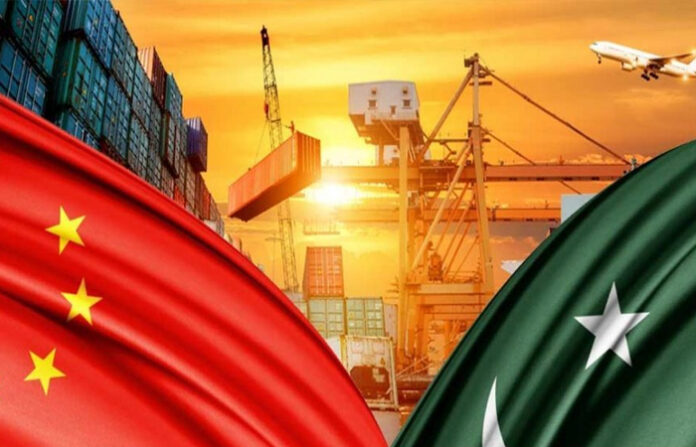The China Pakistan Economic Corridor (CPEC) Business Council is now proposing a list of new sectors and projects to be added under the CPEC umbrella, including the promotion of tourism and the development of major industries in Thar, having undergone a recent re-constitution.
It was proposed that new projects and sectors should be included in the CPEC during the first meeting of the newly re-constituted council.
The goal of the meeting was to establish an interface between the government and the business community and to raise industrial cooperation to higher levels between Pakistan and China, in order to benefit both countries in the coming years.
The meeting was chaired by Abdul Razzak Dawood, Prime Minister for Trade and Investment and was attended by Atif R. Bokhari, Minister of State/Chairman of the Investment Board (BOI), Asim Saleem Baja, Chairman of the CPEC Authority, BOI Secretary Fareena Mazhar, and members of the council and officials of the BOI.
To begin with, it was proposed that there should be an increased emphasis at competitive rates on petrochemical resources and their domestic production. Naturally, this would entail the construction of a petrochemical cracker, a large-scale project which should preferably be included under the CPEC umbrella.
It was also argued that the tourism sector had great potential for the future of Pakistan’s economy, according to officials attending the meeting held on Thursday. The sector should therefore, be encouraged by providing a range of incentives and frameworks for financial support.
Furthermore, it was suggested that in order to make the country an attractive investment destination, a single window facilitation for economic zones should be created under a single authority represented by all the minutes concerned.
Representatives of the private sector present at the meeting indicated that conducting RMB transactions would be a good idea in order to further encourage and promote bilateral trade and investment with China. Although the existence of business visas is important, progress in facilitating work visas for international experts should also be made.
In addition, the development of infrastructure such as hardware manufacturing in the IT sector has been suggested to help rise, expand and boost the economy. By ensuring the transfer of technology, Pakistani institutions will take advantage of Chinese development in the IT field.
During the meeting, Thar’s largely barren landscape was brought up as an ideal place for big industries such as petrochemical and naphtha crackers to be developed. This is because the country has cheap and sustainable energy supplies.
Industrial cooperation is widely seen as a vital aspect of the CPEC, and it is crucial for the government to promote infrastructure growth in Pakistan’s Special Economic Zones (SEZs). In order to find import substitutions, more joint ventures in SEZs should be formed and equal benefits provided to international players should be extended to domestic investors. The meeting attendees decided that funding for the second phase of the CPEC could, in the form of incentives, also be provided by Pakistan.
CPEC is now moving along a new direction of industrial and agricultural growth, according to Mr. Dawood, which needs a more prominent presence in the private sector, combined with higher involvement by technology firms.


